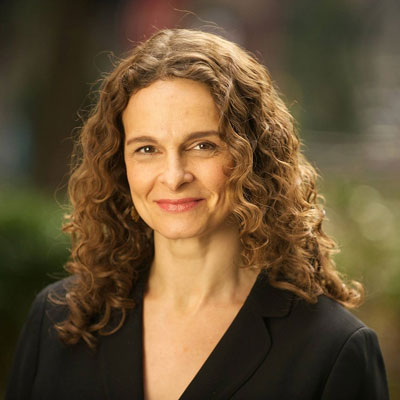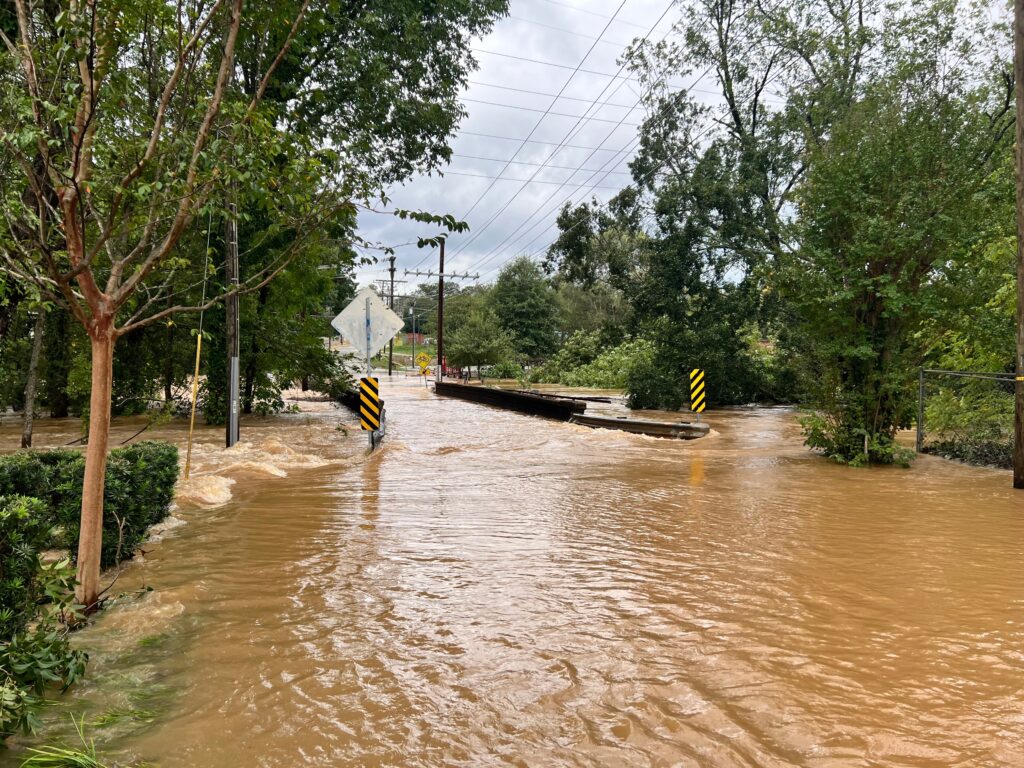By Rabbi Jennie Rosenn
These have been particularly hard High Holidays for people living in the wake of Hurricanes Helene and Milton. People like a dear friend in Asheville, NC who is grateful for her family’s survival but extremely worried about the state of her home, her community, and when running water will return. They say it could be weeks. She describes the destruction as surreal.
These recent climate disasters make crystal clear: the crisis is here. The extreme heat this summer capped the hottest year on record, fueling climate destruction and causing deaths around the world. In the past year alone 100% of Americans have received an extreme weather alert.
It can feel like we are pointed only in one direction: continued deterioration as rising greenhouse gas emissions trap the sun’s heat inside the atmosphere, increasing temperature of earth, air, and water and resulting in extreme weather events of greater and greater magnitude and frequency.
But is it a foregone conclusion that we must continue in a ceaseless march towards more and more destruction? Is it still possible to pull ourselves back from the brink?
This week I find myself reflecting on the Unetaneh tokef, one of the most powerful and haunting prayers in our tradition. We recited it on Rosh Hashanah and will again on Yom Kippur.
On Rosh Hashanah it is written, and on Yom Kippur it is sealed
How many shall pass away and how many shall be born,
Who shall live and who shall die,
Who in good time, and who by an untimely death
Who by water and who by fire…..
Who by famine and who by thirst,
Who by earthquake and who by plague….
Our liturgy starkly lays out a long litany of what may befall us, but then goes on to say: Teshuvah, tefilah, and tzedakah can avert the severity of the decree.
We know we are facing fire and water – hurricanes, wildfires, and droughts. We know millions of people are facing hunger and are forced to migrate from their homes. This is the situation we are in right now.
It can feel like there is an inevitable escalation of the climate crisis. But it is not inevitable. It is too late to keep climate change from happening, but it is not too late to avert the severity of the decree and avoid the worst of climate devastation. In other words: we can bring about a different future.
The Unetaneh tokef reminds us of our own agency – our role in this crisis, and the potential for new choices. How do we claim that agency? Teshuva, tefilah, tzedakah.
Teshuva: turning and returning. Facing the climate crisis can be emotionally and spiritually overwhelming. When we stop and envision the future we are currently hurtling towards – our cities underwater, our grandchildren facing scarcity of food, clean air and water – it can feel like too much to bear. So we distract ourselves. But we need to turn towards the climate crisis, not away. This is the only way we can make change.
Dayenu offers spiritual resources precisely to this end. To enable us to tap into Jewish wisdom and ritual to face the crisis with our eyes and hearts open. Tefilah: prayer. We need to have faith that a different future is possible, and give voice to that faith. Of course we need to stop the bad – emissions and new fossil fuel infrastructure. But that is just one side of the equation. The other side is building the good – envisioning and making manifest a clean energy future that draws on renewable resources.
Tzedakah: righteous giving. How do we reach this vision? Yes, through financial contributions, but also through our actions to bring about a different future. Right now, the single most important thing anyone can do for the climate is help elect climate champions. We need leaders who have the chutzpah to take bold action on climate. And we can do more than vote. We can talk with our friends, family, and colleagues about the importance of voting for a just and livable future; we can reach out to voters across the nation who share our hopeful vision and mobilize them to get to the polls in November. Join our Chutzpah 2024 effort to get climate concerned voters out to the polls.
Some may say it is too late. But our fate is not yet sealed. Yes, climate change is here. But like the days between Rosh Hashana and Yom Kippur, we have a narrow window in which we can avert the severity of the decree. Scientists say we have six years to avert the worst of climate devastation – time in which we can have significant agency.
The High Holidays and the Unetaneh tokef highlight starkly what we can and cannot control. Climate change is here. But we still have time to annul the severity of the decree – and it is going to take all of us.

rabbi jennie rosenn
A visionary and leader in the non-profit sector, Rabbi Jennie Rosenn founded Dayenu in 2020 to mobilize the American Jewish community to confront the climate crisis with spiritual audacity and bold political action. The organization has since grown exponentially, and now mobilizes thousands of Jewish climate activists.
Rabbi Rosenn has spent more than two decades leading Jewish non-profit organizations, advocating for social change and creating dynamic new initiatives at the heart of the Jewish social justice movement. Before founding Dayenu, she served as vice president for community engagement at HIAS, where she built a robust Jewish movement responding to the global refugee crisis.

